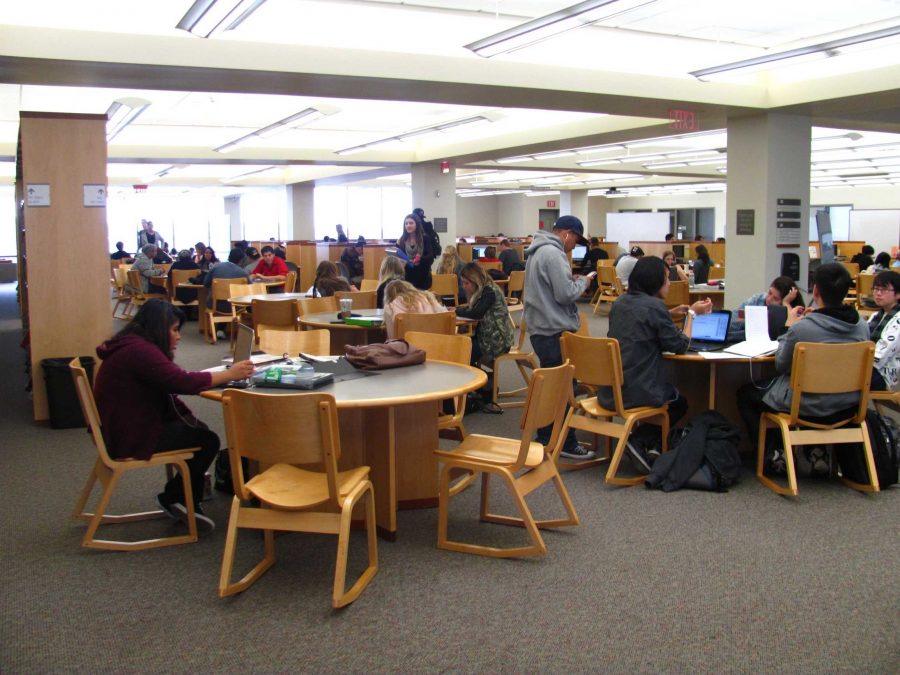“Library;” the definition is almost universally known. However, there’s another term thats definition has become a little more blurry; “study groups.”
The Oxford Dictionary classifies a study group as “a group of people who meet to study a particular subject and then report their findings or recommendations.” What a revolutionary concept; sitting around a table of colleagues, textbooks propped open, with messy class notes and flashcards strewn around, and an array of pens and colored highlighters to keep things interesting. Quizzing each other, sharing notes, and offering support during what often proves to be an intense and stressful time when that big exam starts creeping up.
However, in my experience in the campus library, I have observed very different types of “study groups,” none of which resemble the previously described group in the slightest. If anything, these gatherings seem to be study-break groups, rather than people actually working together to be productive. I have overheard weekend plans, personal stories, plans of engaging in various degrees of illegal activity, and countless off the wall topics that make me wonder what class this is they are studying for.
I am not against study groups, in fact I think that when done right they can be highly effective. The only problem is that it is incredibly difficult to do them right, primarily of how challenging it is to sit around the table with a bunch of friends and not get off topic and mess around. It’s tough to buckle down and get studying when I’m around a group of awesome people; people who I would much rather chat with about the “did-you-know-who-just-broke-up” drama than questions like, “wanna compare chapter 3 cognitive dissonance notes?” But that’s just me.
The library should be a place for quiet study and resources for students. With the members of a distracting “study group” disturbing others, the library turns into a loud cafeteria setting, rather than a place to go to get work done and minimize distractions that are prevalent everywhere else on campus. A solution to this issue would be to simply ask loud groups to take their in- depth conversation about the health benefits of marijuana, or an unknown health issue, somewhere else. Not that we don’t all want to hear about so-and-so’s mysterious rash, it’s just we really need to get some work done. And okay, maybe we also just don’t want to hear about it.
Regardless of what your definition of “study groups” is, in the library the volume should be kept down and the subject matter of your discussions- which we all can hear- should be kept at a decent level of appropriateness. If your idea of a study group includes distracting behavior, take it to a table outside or in the cafeteria; it’s really that easy.







